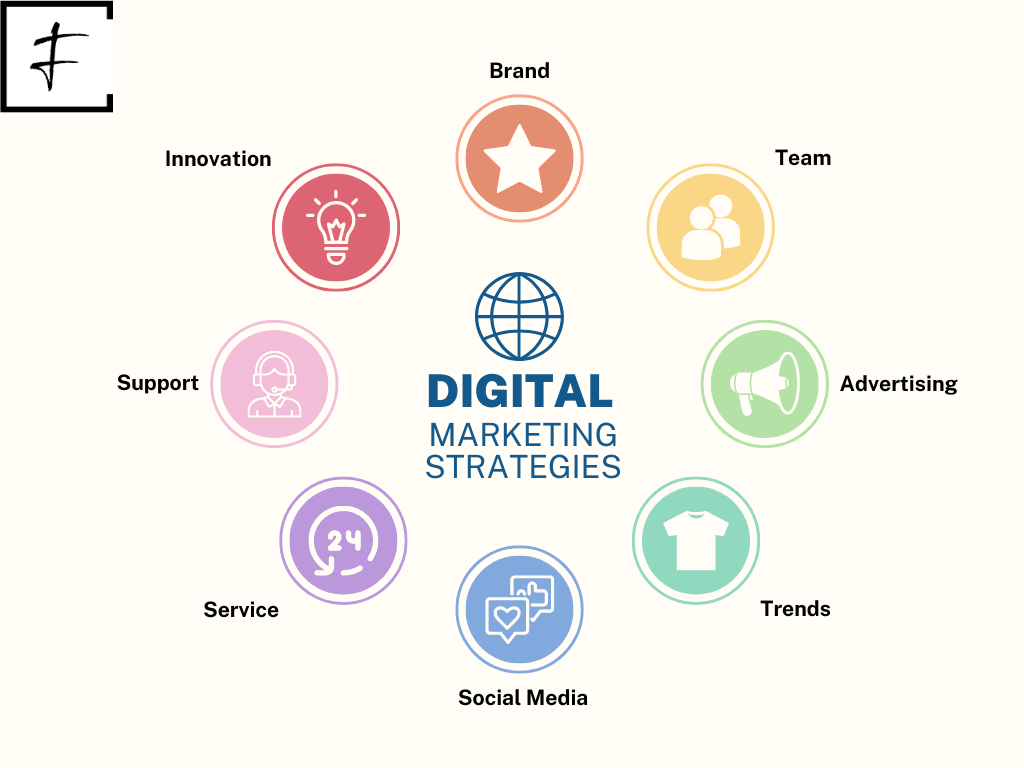Digital marketing is the practice of promoting products or services using digital channels, such as search engines, social media, email, and websites. It’s crucial for businesses today because it allows them to reach a broader audience, engage with customers in real-time, and measure the effectiveness of their marketing efforts.
Digital marketing encompasses a variety of strategies and tactics, including content marketing, social media marketing, email marketing, search engine optimization (SEO), and pay-per-click (PPC) advertising. Each component plays a unique role in attracting, engaging, and converting potential customers.
Conducting a SWOT Analysis
Before diving into your digital marketing strategy, it’s essential to conduct a SWOT analysis to understand your strengths, weaknesses, opportunities, and threats. This will give you a clear picture of your current standing and help you identify areas for improvement.
Identifying Your Target Audience
Demographics
Knowing the age, gender, income, education level, and other demographic factors of your target audience is fundamental. This information helps tailor your marketing messages to resonate with your audience.
Psychographics
Beyond demographics, psychographics delve into the interests, hobbies, values, and lifestyles of your audience. Understanding these aspects can significantly enhance your marketing strategy by making it more personalized and relevant.
SMART Goals
Set Specific, Measurable, Achievable, Relevant, and Time-bound (SMART) goals. For example, instead of aiming to “increase website traffic,” set a goal to “increase website traffic by 20{8e8fc9833065ce099dcaf236946fe221a92526aea462596d7399f3a2f96666d8} in the next six months.”
Aligning Goals with Business Objectives
Ensure your marketing goals align with your overall business objectives. If your business aims to expand into a new market, your digital marketing strategy should focus on reaching and engaging that new audience.

Social Media Marketing
Facebook is excellent for building brand awareness and engaging with a broad audience. Use it to share updates, run ads, and interact with customers.
Instagram is ideal for visually appealing products and brands. Utilize stories, posts, and IGTV to showcase your brand’s personality and connect with younger audiences.
LinkedIn is perfect for B2B marketing. Share industry insights, company news, and professional achievements to build your brand’s authority and connect with other businesses.
Content Marketing
Content marketing involves creating valuable, relevant content to attract and engage your audience. This can include blog posts, videos, infographics, and more.
Email Marketing
Email marketing is a powerful tool for nurturing leads and maintaining customer relationships. Personalize your emails to provide value and drive conversions.
Search Engine Optimization (SEO)
SEO is the practice of optimizing your website to rank higher in search engine results. This increases your visibility and drives organic traffic to your site.
Pay-Per-Click Advertising (PPC)
PPC advertising allows you to place ads on search engines and other platforms, paying only when someone clicks on your ad. It’s a cost-effective way to reach a targeted audience quickly.
Content Creation
Blogs
Blogs are a fantastic way to share in-depth information, answer common questions, and establish your brand as an industry authority.
Videos
Videos are highly engaging and can convey complex information in an easily digestible format. Use them for tutorials, product demos, and behind-the-scenes looks.
Infographics
Infographics combine visuals with data to present information clearly and concisely. They’re great for sharing statistics, processes, and comparisons.
Content Distribution
Once you’ve created your content, distribute it through the appropriate channels. Share blog posts on social media, send videos in email newsletters, and promote infographics on your website.
Timeline and Milestones
Create a timeline with clear milestones to keep your team on track. This ensures that all tasks are completed on time and that you’re making steady progress toward your goals.
Budget Allocation
Allocate your budget based on your goals and the channels you’re using. Ensure you have enough funds for paid advertising, content creation, and other essential activities.
Key Performance Indicators (KPIs)
Track KPIs such as website traffic, conversion rates, and social media engagement to measure the effectiveness of your digital marketing efforts.
Using Analytics Tools
Use tools like Google Analytics, SEMrush, and social media insights to gather data and analyze your performance. These tools provide valuable insights into what’s working and what’s not.
Making Data-Driven Decisions
Use the data you’ve collected to make informed decisions. If a particular strategy isn’t delivering results, adjust your approach based on your insights.
Adapting to Market Changes
Stay flexible and adapt to changes in the market. This might involve shifting your focus to a new platform, experimenting with different types of content, or targeting a different audience segment.
Building the right digital marketing strategy for your business involves understanding digital marketing, analyzing your current situation, setting clear goals, choosing the right channels, developing a content strategy, implementing your plan, and continuously monitoring and adjusting based on results. By following these steps, you can create a strategy that drives growth and success for your business.
